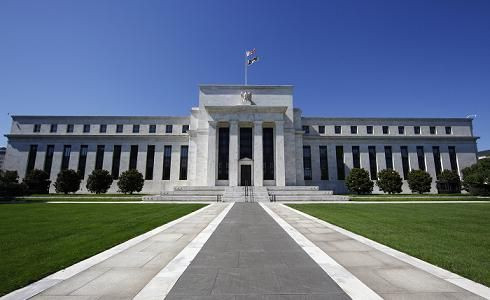Federal Reserve Advisory Committee Worries About Inflation, "Unsustainable Bubble" In Stocks And Bonds

Members of the Federal Reserve’s advisory council, which includes the Board of Governors, have expressed strong concerns over the Fed’s low-interest rate policies and its bond-purchase program, which they say could trigger unmanageable inflation and an "unsustainable bubble" in the stock and bond markets.
Minutes of the Federal Advisory Council meeting held on May 17 were published Friday on the Fed’s website and reveal concerns among its officials over the long-term ramifications of its quantitative easing policies.
“There is also concern about the possibility of a breakout of inflation, although current inflation risk is not considered unmanageable, and of an unsustainable bubble in equity and fixed-income markets given current prices,” according to the minutes of the council meeting.
Some of the members of the advisory council, consisting of private bankers from each of the Fed's 12 banking districts, pointed out that near-zero interest rates could not be sustained in the long run.
A spike in inflation could force the Fed to hike interest rates, hurting business confidence and consumer spending, and prove disastrous to the U.S economy, which is still clawing its way back from the debilitating effects of the 2008 financial crisis.
Although the council’s members acknowledged that the Fed’s current policies have aided a slow recovery, its effectiveness on employment generation is not clear, they noted. "Uncertainty about fiscal and monetary policy is deterring business investment that would spur growth," the Council noted.
Unemployment in the United States dipped marginally to 7.50 percent in April 2013 from 7.60 percent in March.
The advisory council echoed the concerns of some economists that the Fed’s massive bond-buying exercise could potentially expose the banks to systemic financial risks and structural problems.
“Net interest margins are very compressed, making favorable earnings trends difficult and encouraging banks to take on more risk. The Fed’s aggressive purchases of 15-year and 30-year MBS have depressed yields for the “bread and butter” investment in most bank portfolios; banks seeking additional yield have had to turn to investment options with longer durations, lower liquidity, and/or higher credit risk,” the minutes said.
Some members also expressed anxiety over the recent surge in markets stating that the equity and fixed-income markets are bloated. On May 28, consumer confidence and higher home prices help the Dow Jones Industrial Average scale another record high to end the day up 106 points, or 0.7 percent to 15,409.
The strongly worded sentiments expressed in the minutes clearly suggest that overvalued markets could come down to more realistic levels when the Fed stops its quantitative easing program.
“Uncertainty exists about how markets will reestablish normal valuations when the Fed withdraws from the market. It will likely be difficult to unwind policy accommodation, and the end of monetary easing may be painful for consumers and businesses,” the minutes stated.
© Copyright IBTimes 2024. All rights reserved.






















